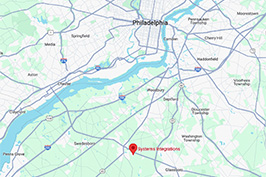Why State Licensing Matters for Security and Life Safety Systems: The Critical Importance of Working with Licensed Contractors
When it comes to protecting your business, employees, and assets, security and life safety systems are not areas where you can afford to cut corners. Whether you’re installing card access control, video surveillance, intrusion alarms, or fire alarm systems, working with properly licensed contractors isn’t just recommended—it’s essential for your safety, legal compliance, and long-term peace of mind.
Understanding State Licensing Requirements
State licensing for security and life safety systems exists for good reason. These systems are complex, interconnected technologies that require specialized knowledge, training, and expertise to install and maintain properly. While licensing requirements vary from state to state, the fundamental principle remains the same—contractors must obtain specific licenses to work on:
- Card access control systems
- Video surveillance equipment
- Intrusion detection systems
- Fire alarm systems
- Structured cabling for security applications
Systems Integrations maintains active licenses in New Jersey, Pennsylvania, Delaware, and Florida, ensuring we can provide compliant, professional services across multiple jurisdictions. Licensed contractors have demonstrated their competency through rigorous testing, continuing education, and adherence to state regulations. They understand local codes, safety requirements, and industry best practices that ensure your systems function reliably when you need them most.
The Hidden Dangers of Unlicensed Contractors
Using unlicensed contractors for security and life safety installations creates serious risks that extend far beyond initial cost savings:
- Legal and Compliance Issues: Unlicensed work may violate local building codes and insurance requirements. If an incident occurs and investigators discover unlicensed installation work, your insurance claims could be denied, leaving you financially exposed.
- Safety Hazards: Improperly installed fire alarm systems may fail during emergencies, putting lives at risk. Incorrectly wired intrusion systems can create electrical hazards or fail to protect your property when needed.
- System Reliability Problems: Without proper training and certification, unlicensed contractors often make installation errors that lead to frequent false alarms, system failures, and costly repairs down the line.
- No Accountability or Recourse: Licensed contractors carry proper insurance and are accountable to state regulatory bodies. Unlicensed contractors offer no such protection, leaving you with limited recourse if problems arise.
The Value of Professional Expertise
Licensed security integrators bring more than just legal compliance to your project. They offer:
- Comprehensive System Design: Licensed professionals understand how different security components work together, ensuring your card access, video surveillance, and alarm systems integrate seamlessly.
- Code Compliance Expertise: From ADA requirements to fire code regulations, licensed contractors ensure your installation meets all applicable standards.
- Ongoing Support and Maintenance: Licensed contractors provide proper documentation, training, and ongoing support to keep your systems functioning optimally.
- Quality Assurance: Licensed professionals follow established testing and commissioning procedures to verify system performance before handover.
What to Look for in a Licensed Contractor
- Confirm active state licensing through official state databases
- Check insurance coverage and bonding
- Verify manufacturer certifications for the equipment they install
- Ask about continuing education and training programs
- Request references from similar projects
The Bottom Line
Schedule your consultation today and discover why 75% of our business comes from repeat customers who trust our quality and responsiveness.




